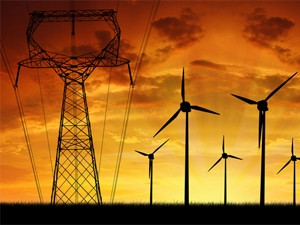
Resorting to wind and solar power on a large scale to solve SA's base power load woes will have serious ramifications, reducing economic growth potential by as much as R800 billion by 2030.
In addition, says Econometrix MD and senior economist Rob Jeffery, the knock-on effects of continued high investment in renewable energy could cost the country four million jobs in the next 15 years. This, he explains, is because, over the long-term, renewables will push up the price of power, leading to less investment in the country.
Jeffery explains the "hidden costs" of using renewable energy for base load power include backup power and storage facilities so that green power can operate at the same efficiency as coal-powered plants. In addition, he notes, because Eskom is required to buy output from renewable projects - even when this is not required - the price of electricity will inevitably rise as more green power projects are commissioned.
As a result, says Jeffery, renewable energy is not suitable for base load power. Base load power is defined as electricity that is constantly generated and can satisfy a minimum demand, unlike peak power, which comes into effect when there is high demand for electricity, such as when everyone turns on heaters.
The additional, generally hidden, costs of renewable energy means photovoltaic solar is more than 55% more costly than electricity generated by coal, concentrated solar power is almost double, and wind is about 40% more costly, says Jeffery.
Short-term plan
In the past two-and-a-half years, the private sector has invested more than R190 billion in renewable energy projects that government sees as aiding SA cut emissions. Energy expert Chris Yelland has noted there are about 50 projects on the go.
Lucy Baker, a research fellow in international relations at the University of Sussex's Energy Group, has explained SA's renewable energy industry is emerging in the midst of the country's worst electricity supply crisis in 40 years. This has resulted in soaring tariffs and a downgrading of national power utility Eskom to junk status.
The renewable energy programme is being spurred on by government's four-year-old renewable energy programme, which has attracted investment totalling R193 billion so far, with 5 243MW set to be added to the grid. Baker notes tariffs offered by the most recent renewable energy projects are now well below those that will come from Eskom's future coal plants.
"It is quite true that, at present and when there is constrained supply of electricity, the contribution made by renewables is substantial as it saves diesel generation costs. Once base load power is fully available some, but not all, of these benefits will be lost," explains Jeffery.
Econometrix has calculated the shortage of electricity and low growth have, between 2008 and 2014, wiped around R340 billion from the economy, resulting in two million less jobs. Jeffery says the renewables programme has made a positive contribution to the economy and job creation during this time, and will continue to do so for another three to five years.
However, these benefits will wear off should the government continue its substantial investment in renewable energy, says Jeffery.
According to research conducted by the Council for Industrial and Scientific Research, South Africa saved R800 million last year thanks to wind and solar projects. The independent study looked at how much additional fuel would have cost if the initial 1 600MW of wind and solar photovoltaic was not added to the grid, and how much the renewable energy saved because power did not have to be sourced from Eskom.
Jeffery notes the savings reflect the fact that electricity supply is constrained. "If this was not the case, a significant proportion of renewables savings would fall away. Renewables have an important role to play to diversify energy sources but it is imperative to increase electricity supply from sources which are reliable and cheaper."
Share